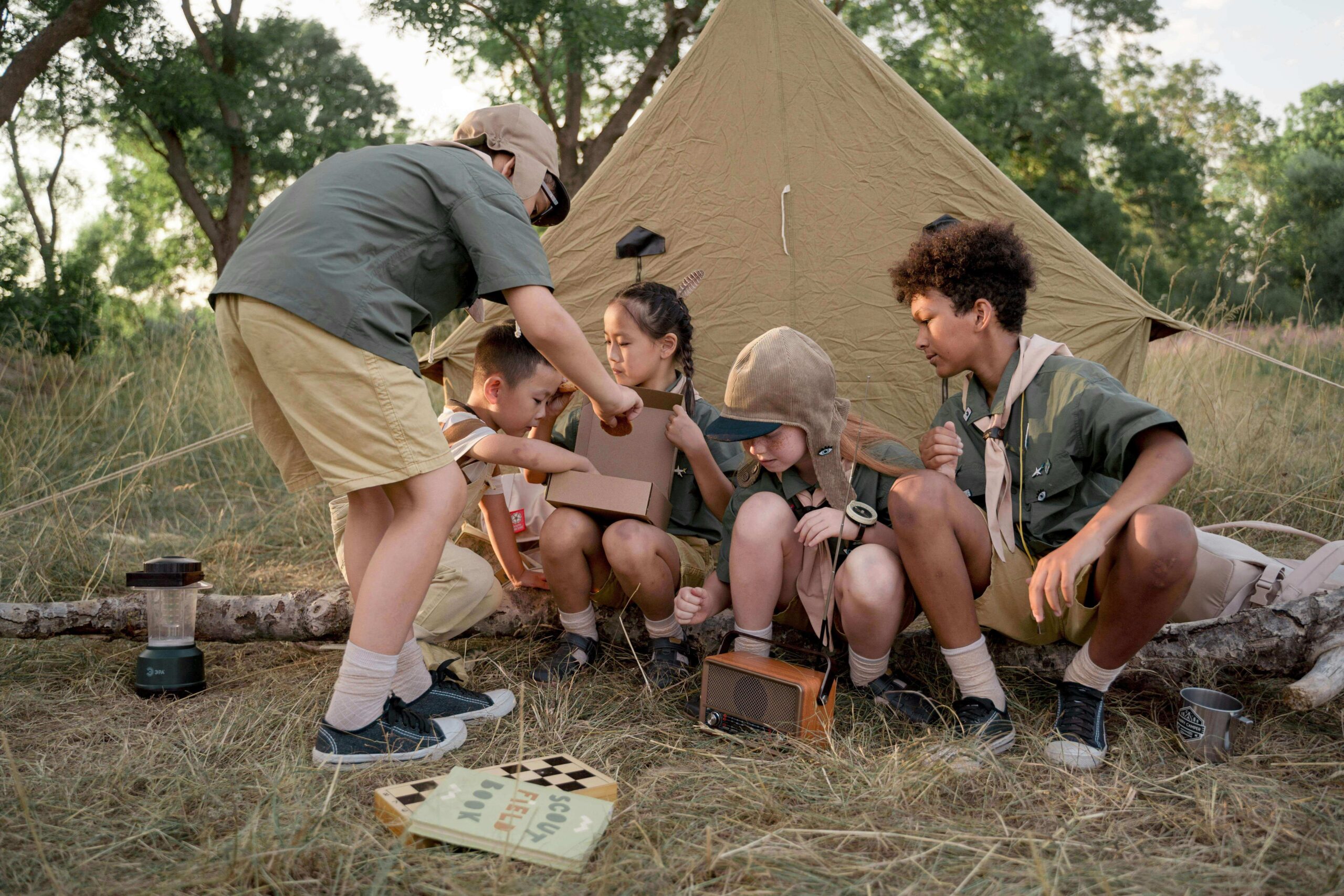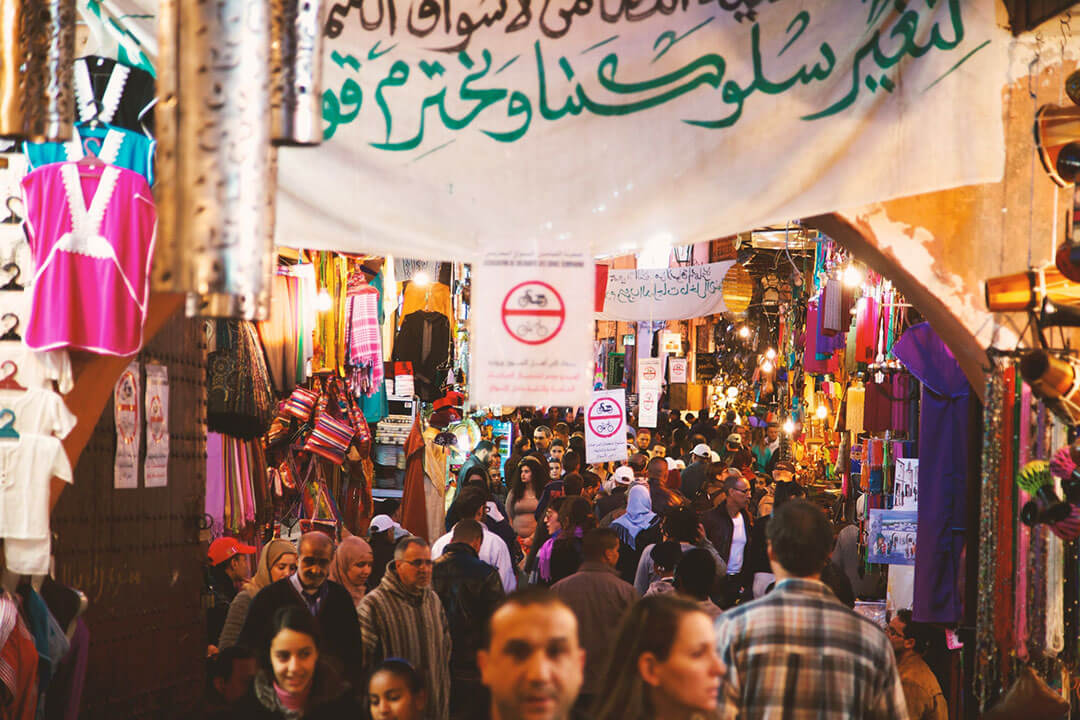
by nynasma | May 29, 2024 | BLOG
If your friend has invited everyone to her wedding except you, it can be a hurtful and confusing experience. The best course of action is to approach the situation with open communication. Ever wondered how to talk about this in Arabic? This week’s new video, I will share a story that was shared by you and talk about it in Arabic. As usual, watch the video at the end of the page and check out the important vocabulary that you might need to add to your list.
Thank you for being here 🤍
Notes of Video Wedding”.
Phonetic Script:
Rfe2te 3azamit kil as7abna 3ala 3ersa ela ana! Shu ba3mul?
A new story shared by you, let’s talk about it in Arabic.
Akid hayda shi biza3elne law ana ma7alek. Bus fike ta3emle sha-gheltein. Fike tanshiha w ma t2ole shi abadan! Bil 3arabe min2ol ‘la ejrek’. Bil 3akes hek btkune wafarte 3ala 7alek masare le2an ken lezim tshtrela hdiyeh aw cadeau.
Hal2 iza badek twa27e 3ein, fike te7emle telephone, w de2ela, w t2ilila enta we7de bala zo2 w bala akhla2. Kholsit!
Arabic script:
رفيقتي عزمت كل اصحابنا على عرسها، الا انا شو بعمل؟
قصة جديدة بعتولي ياها انتو، خلينا نحكي عنها بالعربي.
اكيد هيدى الشيء بزعلني لو انا محلك، بس فيكي تعملي شغلتين فيكي تطنشيها وما تقولي شيء ابداً، بالعربي منقول لاجرك، بالعكس هيك بتكوني وفرتي على حالك مصاري لان كان لازم تشتري لها هدية او كادو cadeau.
هلأ إذا بدك توقحي عين فيكي تحملي التليفون وتدقي لها وتقولي لها انت وحدة بلا ذوق وبلا اخلاق، خلصت!
English Translation:
My friend invited all our friends to her wedding except me. What do I do? A new story shared by you. Let’s talk about it in Arabic.
Of course this would make me sad if I were you, but you can do two things. You can ignore her and not say anything at all. In Arabic we say, ‘for your leg’. On the contrary, you would have saved yourself some money because you needed to buy her gift.
But if you want to be unapologetic, you can hold the telephone and call her and tell her you have ‘zero taste and zero moral’. It’s done!
Notes:
| Vocabulary |
Masculine |
Feminine |
Notes (if any) |
| Wedding |
3eres |
|
|
| Thing |
|
Shaghleh |
You can also say ‘shi’ which means something. But ‘something’ can’t be changed into duals. Whereas, if you are trying to say two things, you must say sha-gheltien. |
| Ignore |
Tanesh |
Tanshe’ |
Ignore her: Tanshiha
Ignore him: Tanshe
The root verb is Tanash(Ytanesh). And this word is in the command form. |
| To your leg |
La ejrak |
La ejrek |
A phrase that means ‘don’t care’ |
| Gift |
|
Hdiyeh |
|
| To be unapologetic |
Twa2e7 3ein |
Twa27e 3ein |
Literal meaning is: not make your eyes shy. We say it when we are trying to ask or do something without being shy about it. |
| No taste |
Bala zo2 |
|
Which means no class or no manners |
| No manners |
Bala akhla2 |
|
No manners |
| Done! |
Kholsit |
|
Comes from the verb to finish: Kholis (ykhlas) |
Checkout or textbooks HERE
Join our group classes HERE
Schedule a private class with ME
Join our free Levantine Masterclass HERE
We offer kids classes & kids stories Too!

by nynasma | May 23, 2024 | BLOG
Nasma of New York Culture Center: Bringing the First and Only Kids Immersion Program to Lebanon
A New Chapter in Levantine Language Education
At Nasma of New York Culture Center, we are thrilled to announce a groundbreaking initiative that marks a new chapter in our journey of promoting Levantine Arabic language and culture. After more than 11 successful years of offering Levantine Arabic classes in New York City, we are excited to introduce Lebanon’s first and only kids immersion program. This summer, we are bringing our expertise and passion to Lebanon, offering diaspora children a unique opportunity to reconnect with their linguistic and cultural roots.
A Homecoming for the Diaspora
For children of the Lebanese diaspora, maintaining a connection to their heritage can be challenging, especially when living far from their native land. Our new immersion program is specifically designed to address this need. By immersing children in the Levantine Arabic language and Lebanese culture, we aim to strengthen their sense of identity and belonging. This program is more than just a language camp; it’s a cultural homecoming, a chance for children to embrace their roots in an engaging and supportive environment.
Why Choose Nasma’s Immersion Program?
Nasma of New York has earned a reputation for excellence in Levantine Arabic education. Our teaching methods are innovative, effective, and tailored to meet the needs of young learners. Here’s what sets our program apart:
- Expertise: With over a decade of experience, our curriculum is designed by seasoned educators who understand how to make learning fun and effective.
- Cultural Integration: Our program goes beyond language instruction, incorporating cultural activities that bring Lebanese traditions to life. From folk tales and traditional dances to culinary classes, children will experience the richness of their heritage.
- Community Building: Our camp fosters a sense of community and belonging, helping children build friendships and connections that transcend borders.
Program Highlights
Our two-week immersion camp, running from July 15 to July 26, is packed with activities that are both educational and entertaining. Here’s a glimpse of what’s in store:
- Language Immersion: Daily interactive sessions focused on conversational Levantine Arabic, using songs, stories, and games to make learning natural and enjoyable.
- Cultural Activities: Children will explore Lebanese folklore, participate in traditional dance lessons, and learn to prepare classic Lebanese dishes like manakish and hummus.
- Creative Arts: From painting to clay modeling, our arts and crafts sessions will help children express their creativity while learning about traditional Lebanese art forms.
- Team Building: Group games and team-building exercises designed to foster cooperation, friendship, and a sense of community.
Our Dedicated Team
Leading our camp this summer is Mirna, a seasoned educator with over 10 years of experience in teaching and curriculum development. As a mother of three, Mirna understands what children need to stay engaged and motivated. She will be supported by a team of fantastic instructors, all dedicated to providing a memorable and enriching experience for every child.
Join Us This Summer!
We invite you to enroll your children in our pioneering Levantine Arabic immersion program. Whether, they are seasoned speakers or just beginning their language journey, this camp offers a unique opportunity to enhance their language skills, connect with their cultural heritage, and make lifelong friends.
Don’t miss out on this exciting opportunity. Join Nasma of New York Culture Center in Beirut this summer, and give your children the gift of language and culture. You can read more about the camp here!
If you won’t be in Lebanon this summer don’t worry, we offer several other activities separate from our two-week courses. Please read on to learn more!
Experience the joy of reconnecting with your heritage. Register now and become part of the Nasma family!
by nynasma | May 21, 2024 | BLOG
Thank you for being here 🤍
Notes of Video “Cheap”.
Phonetic Script:
Bakheel, ke7te, 3ayno mish shab3aneh, w rkheas kamen!? Arba3 mostala7at fikon tsta3emloha la tosfu ‘a cheap person’ and these are some examples.
- Daharet mara ana w rfe2ah w re7na la neshtre shi nekloh. Lama sar lezim nedfa3 el-fatourah, aletle’ al heye nesyeh el-portmpne’. Mish 3alye hal 7araket! Hayde 7arakeh rkhisah.
- Daharte awal marah ma3 shab w kento date w dafa3ek el-fatourah? Eh hayda akid sha-khes ke7te, ba3de 3ano!
- Kil ma bteje la3inde btekhod ot3et tyeb w ma bitreda? Mish ma32ol 3ayna mish shab3aneh!
- Byedhar ma3 as7abo w lama bteje el-fatourah byekhtefeh? Eh hayda miyeh bil miyeh bakhil!
Arabic script:
بخيل وكحتي وعينه مش شبعانة ورخيص كمان اربع مصطلحات فيكن تستعملوها لتوصفوا شخص يخيل، و هايدول بعض الامثلة:
١- ضهرت مرة انا ورفيقة ورحنا لنشتري شيء ناكله لما صار لازم ندفع الفاتورة قالت لي هي ناسية البورتمونيه، مش عليي هالحركات هيدي حركة رخيصة.
٢- ضهرتي أول مرة مع شب وكنتو دايت و دفعك الفاتورة اي هيدا اكيد شخص كحتي بعدي عنه.
٣- كل ما بتجي لعندي بتاخد قطعة ثياب وما بتردها مش معقول عينها مش شبعانه
٤- بيضهر مع اصحابه ولما بتيجي الفاتورة بيختفي اي هيدا مية بالمية بخيل.
English Translation:
Bakheel, ke7te, 3ayno mish shab3aneh, w rkheas as well!? 4 terms you can use to describe ‘a cheap person’ and these are some examples.
- I went out with my friend to grab a bite, when it was time to pay she told me that she forgot her wallet. These moves don’t pass me! This is a cheap person!
- You went out with a guy on a date and he made you pay for the bill? This guy is definitely stingy, stay away from him!
- Eveytime she comes over she takes a piece of my clothes, and doesn;t return it? Unbelievable ‘her eye is not full’.
- He goes out with his buddies and when the bill comes he disappears? He is 100% cheap!
Notes:
| 4 Stingy Phrases |
Masculine |
Feminine |
Notes (if any) |
| Cheap |
Rkhis |
Rkhisah |
It could also be used for objects as well. Like a cheap restaurant or a cheap book. But when using it with humans, it means stingy. |
| Stingy |
Ke7te |
Ke7tiyeh |
|
| “Eye not full” |
3ayno mish shab3aneh |
3ayna mish shab3aneh |
Another phrase to describe someone cheap |
| Stingy |
Ke7te |
Ke7tiyeh |
|
| Stingy |
Bakhil |
Bakhileh |
|
| More useful vocabulary |
Masculine |
Feminine |
Notes (if any) |
| Not on me |
Mish 3alaye’ |
Same |
In other words, ‘I don’t buy it’ |
| Unbelievable |
Mish ma32ol |
Same |
|
| To disappear |
Byekh-tefe |
Btekh-tefe |
Root verb: Kh-tafa
Imperfect (Ykh-tefe) |
| 100 percent |
Miyeh bil miyeh |
|
Very useful phrase and has no gender. |
Checkout or textbooks HERE
Join our group classes HERE
Schedule a private class with ME
Join our free Levantine Masterclass HERE
We offer kids classes & kids stories Too!
The Arabic language, rich in its expressive vocabulary, has several nuanced terms to describe the concept of stinginess. Each one of these words convey different shades of unwillingness to share or spend. This diversity not only highlights the depth of Arabic but also its cultural emphasis on generosity and the social importance of distinguishing between various degrees of frugality. Understanding these terms offers a fascinating insight into the values and linguistic richness of the Arab world. For more on the beauty of the Arabic language and its intricate vocabulary, stay tuned to our next video! For now watch the video again!
by nynasma | May 16, 2024 | BLOG
Thank you for being here 🤍
Discussing social and controversial topics while learning a language fosters critical thinking skills by encouraging learners to consider diverse perspectives and engage in meaningful dialogue. It enhances language fluency as learners navigate complex discussions, expanding their vocabulary and honing their communication abilities. Hence, this is why I chose to talk about this topic today! I recommend to watch my Instagram video first, then watch it again while reading the subtitles, and then you can choose what vocabulary you would like to add to your flashcards.
Notes of Video “Cheating Husband”.
Phonetic Script:
Shefit zog rfe2te e3id b Starbucks ma3 we7de tenyeh b jalseh 7amimiyeh, b2ol la marto shi?
Shakhes minkon ba3atle hal osha w sa2alna kif fina ne7ke 3an hayda el-mawdo3 bil 3arabe. Ka ahel el-balad, ni7na hek minla2le2.
Awal shi, shu m2a3dek b Starbucks? Ma ni7na m2at3in!
Tene shi, ente m2aqadeh inu hayda huwe? Mish balke 7adan byeshbahu? Hal2 iza m2aqadeh miyeh bil miyeh, fike tsawre w teb3ate el-sorah la marto w tis2aliha iza hayda jawza. Hayda eza badek tekherbeh bayta!
Iza ana ma7alek, bro7 la 3indo bsalem 3ale w bis2alo, ‘wein marto w kifa w waina?’ Yimkin el-mara yale ma3o ma bta3ref inu huwe mjawaz.
Arabic script:
شفت زوج رفيقتي قاعد بستاربكس مع وحدة تانية بجلسة حميمية، بقول لمرته شي؟
شخص منكن بعتلي هالقصة وسألنا كيف فينا حكي عن هالموضوع بالعربي. كأهل البلد نحن هيك منلَقلِق
أول شي شو مقعدك بستاربكس ما نحن مقاطعين
تاني شي إنت مأكدة إنو هيدا هوي مش بركي حدا بيشبهه؟ هلأ إذا مأكّدة مية بالمية فيكي تصوريه وتبعتي الصورة لمرته وتسأليها إذا هيدا جوزها، هيدا إذا بدك تخربي بيتها
إذا انا محلك بروح لعنده بسلم عليه وبسأله وين مرته، كيفها ووينها، يمكن المرأة يلي معه ما بتعرف انه هوي مجوز
English Translation:
I saw my friend’s husband sitting in Starbucks with another woman in an intimate setting. Do I tell his wife?
One of you sent me the story and asked us how can we talk about this in Arabic? As natives, this is how I would spill the tea.
First of all, why are you sitting in Starbucks? We are boycotting that!
Second of all. Are you sure it’s him not someone who looks like him? If you are 100% sure you can take a picture and send it to his wife and ask her if that’s her husband. This is if you want to wreck her home.
If I were you, I would go to him, say hi and ask him where his wife is, how is she, and where is she? Maybe the woman that is with him does not know that he is married.
Notes:
| Word |
Masculine |
Feminine |
Notes (if any) |
| Intimate setting |
Jalseh 7amimiyeh |
|
This phrase can also be used to refer to an intimate gathering with your friends. Not romantically only. |
| Spill the tea |
Minla2le2 |
|
It’s a verb. The root is ‘La2la2 / لقلق” and the imperfect form is ‘Yla2le2 / يلقلق’
The noun would be ‘La2la2ah / لقلقة’ |
| Boycotting |
M2ate3 |
M2at3ah |
And the plural is m2at3in. |
| 100 percent |
Miyeh bil miyeh |
|
Very useful phrase and has no gender. |
| Wreck her/his home |
Tekherbeh bayto |
Tekherbeh bayta |
Very common phrase that is used. The phrase is made of two words, to ruin or wreck and house. The root verb for to ruin is ‘Kharab / خرب’ and the imperfect is ‘Ykhrob / يخرب’ |
Checkout or textbooks HERE
Join our group classes HERE
Schedule a private class with ME
Join our free Levantine Masterclass HERE
We offer kids classes & kids stories Too!

by nynasma | Nov 17, 2020 | BLOG
One Language, Dozens of Dialects
Since you’re reading this, you are curious about the Arabic language. But saying “Arabic language” oversimplifies the matter considerably. There are many varieties of Arabic, some of which are wildly different from others. If you want to read Arabic-language newspapers and websites, then you’ll need to know Modern Standard Arabic (MSA), but that won’t help you much in a conversation. If you want to talk to people, you’d best learn the Levantine dialect or one of the other popular dialects of Arabic. Arabic is not a single language but an umbrella that covers a vast continuum of dialects, each showing a unique history that developed over many centuries. In this blog post, you’ll read a brief overview of Arabic dialects.

Can Arabic Speakers Understand Each Other?
If you’ve read this far, you presumably have a good grasp of the English language. You won’t lack for the company: as many as two billion people speak English (400 million do so natively). Nor will you lack for reading material, as English is the most frequently used language in scientific papers and on the Internet. Arabic’s numbers are more modest in this regard: there are perhaps 400 million speakers, native and second language, of all varieties of Arabic. Most live in the Middle East and the north of Africa, but there is also a significant Arabic diaspora.
What happens if you put an English speaker from Ireland and an English speaker from New Zealand in a room together? Would they be able to converse at once? Or would it take a long time for them to understand one another? As it turns out, they’d figure it out quickly. With a bit of time and patience, those two would soon come to grips with their differences in slang, accent, and minor points of syntax, and could chat happily.
The linguistic term to describe two dialects or languages that are similar enough that a speaker of one can understand the other is mutually intelligible. Despite the huge number of speakers, all varieties of English are mutually intelligible. No two are so distinct that a pair of speakers from far-flung cultures would be unable to work through their differences and communicate efficiently.
With Arabic, the situation is more complicated. Distant varieties of Arabic can be mutually unintelligible, and some linguists consider such wildly different varieties to be entirely separate languages. For example, an Arabic speaker from Saudi Arabia would have great difficulty understanding an Arabic speaker from Morocco.
One solution to the problem of unintelligibility comes in the form of Modern Standard Arabic (MSA). MSA developed alongside the use of the printing press in the Arabic world, and it is a standardized form of Arabic. MSA is the language used by newscasters, academics, schoolteachers, lawyers, and legislators. Most Arabic speakers use MSA only for reading and writing and prefer their mother dialect for speech. Nobody speaks MSA as a first language, but since all Arabic speakers know MSA, it provides a common ground for speakers whose dialects of Arabic are mutually unintelligible.
Incidentally, mutual intelligibility is not a yes or no proposition. Some dialects are highly mutually intelligible, others only somewhat so. Roughly speaking, the farther apart the geographic homes of two dialects are, the less intelligible they will be.

The Many Arabic Dialects
As mentioned above, Arabic varies considerably from region to region. There are approximately 30 total varieties. Some are quite like one another, and some are mutually unintelligible. A blog post is insufficient to discuss all these varieties and the differences between them, so what follows is a necessarily incomplete list of some of the most-spoken varieties.
This is the family of Arabic dialects spoken in Morocco, Algeria, Tunisia, and Libya. About 70 million people speak the language. Maghrebi Arabic shows a lot of influence from the Berber language and has liberally borrowed loanwords from French, Spanish, and Italian. Thanks to this unique combination of influences, Maghrebi Arabic tends to be incomprehensible to Arabic speakers from the Middle East, with Moroccan Arabic being particularly opaque.
Egyptian Arabic is the native language of more than 60 million people, and thanks to the popularity of Egyptian media and the broad influence Egypt wields, most of the Arabic-speaking world understands Egyptian Arabic. Keep in mind, however, that the people of Egypt speak a variety of dialects; when people say “Egyptian Arabic,” they usually mean the Arabic commonly spoke in Cairo.
Like so many other varieties of Arabic, the Levantine dialect is not a single form of Arabic, but a continuum of dialects. There are several mutually intelligible dialects: Palestinian, Jordanian, Lebanese, and Syrian Arabic are the primary varieties of Levantine Arabic, totaling over 30 million native speakers.
Part of the popularity of Levantine Arabic comes from the creativity of its people. As in Egypt, the people of the Levant produce a huge variety of music and shows, and thanks to the mutual intelligibility of the dialects, Arabic-speaking citizens of one country can easily enjoy the media of the others. Additionally, producers of foreign media often expand their viewership into the Levant by producing Levantine translations of their works. Turkish soap operas are so popular in the Levant that several shows are regularly dubbed into Levantine Arabic.
There is also a significant diaspora of Levantine Arabic speakers. It’s obvious why: the conflict between Israel and Palestine, the civil war in Syria, protests and upheavals in Lebanon and Jordan … the Levant has suffered through political and economic instability for years. Many people have taken the difficult decision to leave their homelands to try to find safer places to live, and those people brought their language with them.
There are many more varieties of Arabic than the few discussed here, and we hope to discuss more in future posts. If you are curious about learning Levantine Arabic, please browse through the rest of our website. Check out our podcast or follow us on Instagram and you can start to learn Arabic for free, one word at a time.





